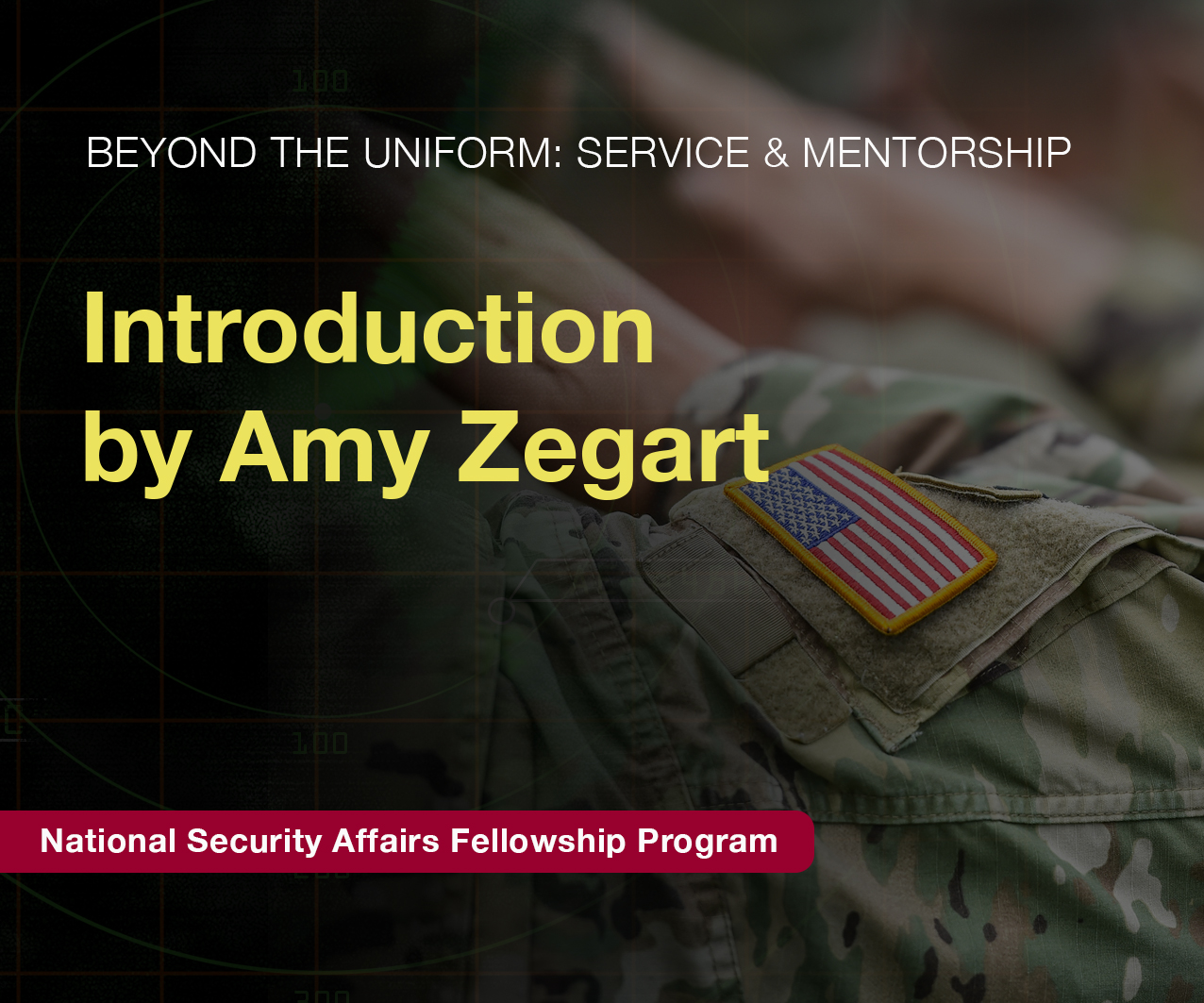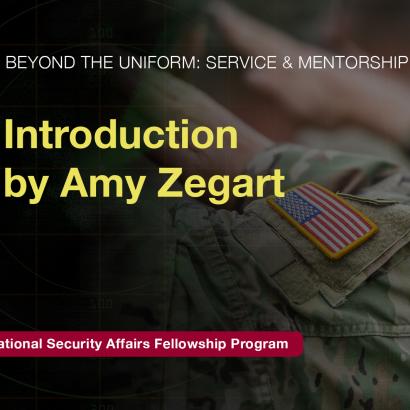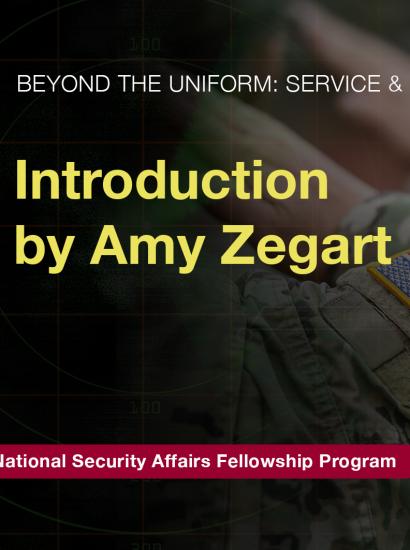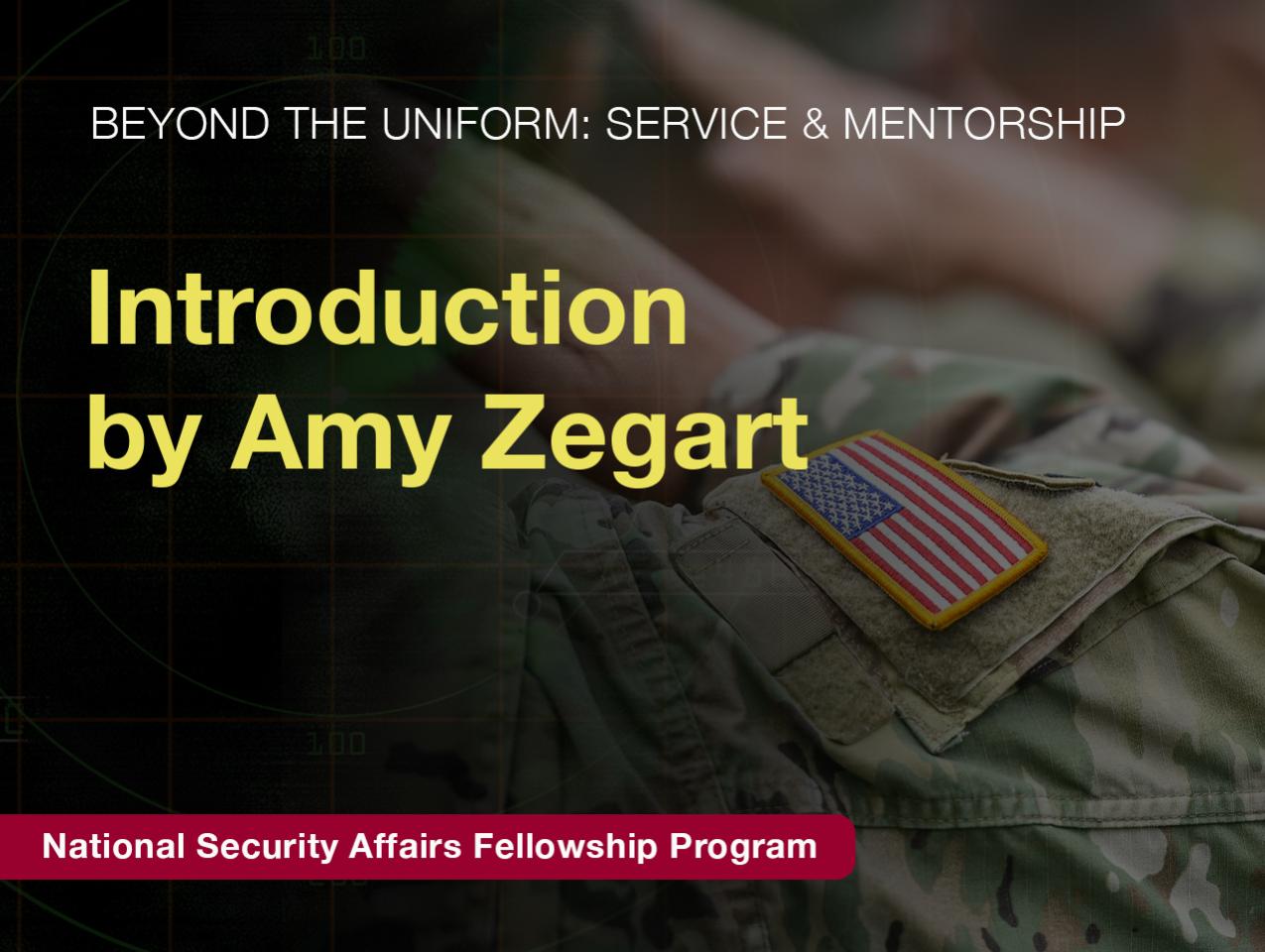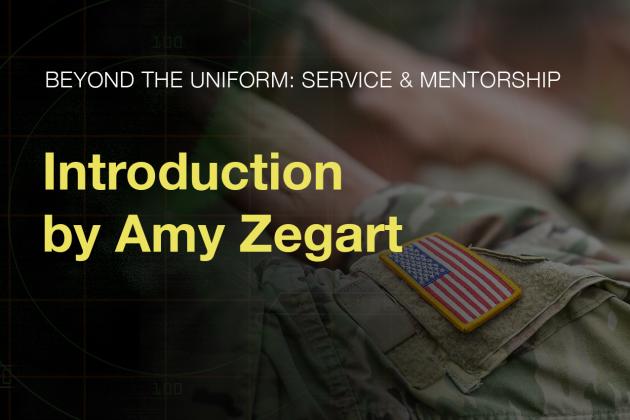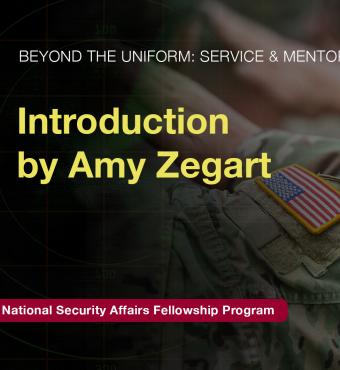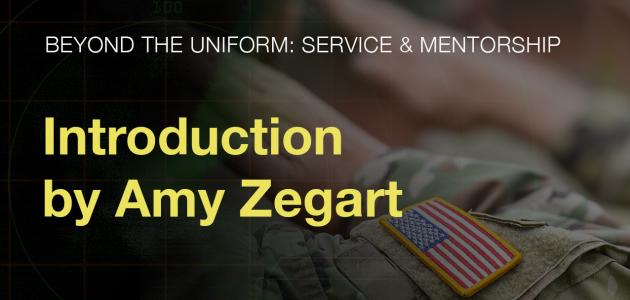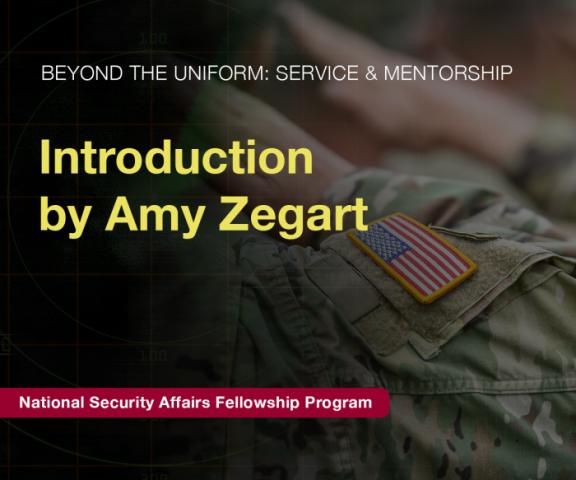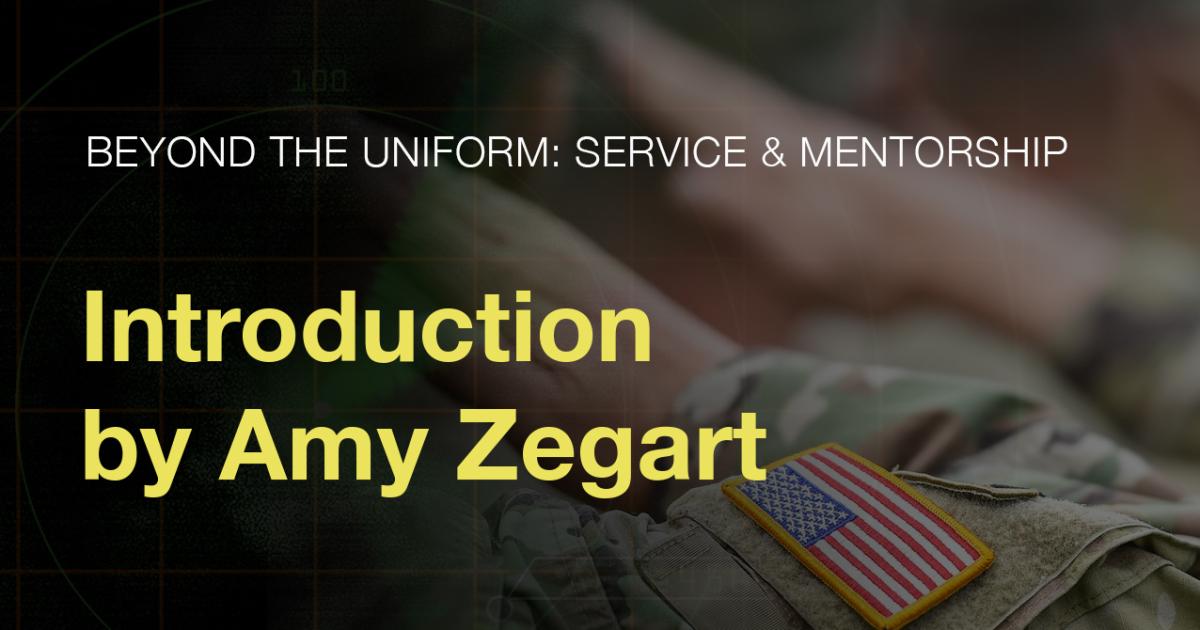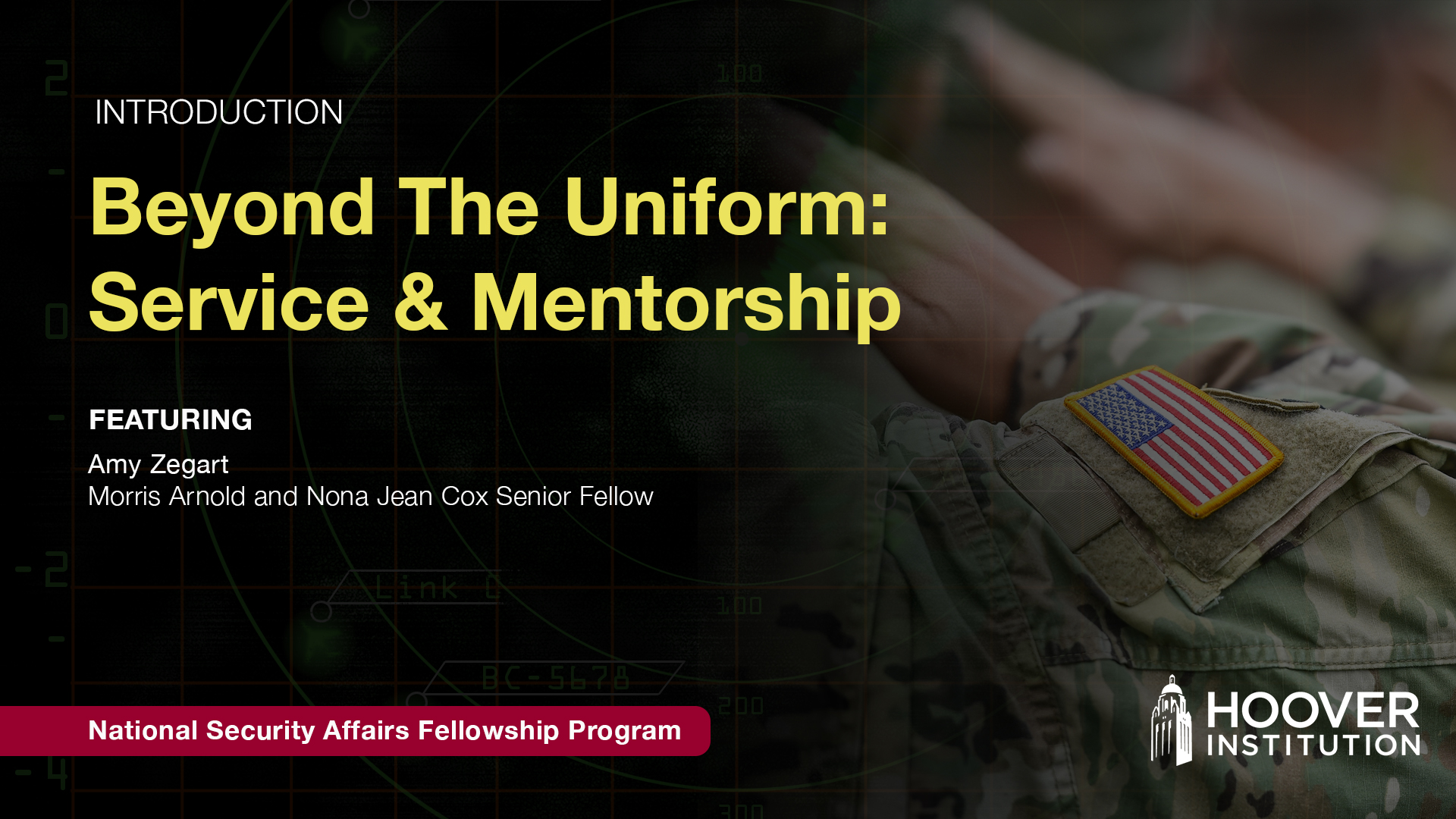Senior Fellow Amy Zegart, describes her vision for the National Security Affairs Fellows Mentorship Program, highlighting meaningful discussions on national security, civilian-military relationships, and leadership from both Stanford students and their NSAF mentors.
WATCH THE VIDEO
>> Amy Zegart: I created this mentorship program several years ago, really with two goals in mind. The first was to build community. Most Stanford undergraduates have never met anybody from the US military or the State Department or the intelligence community. At the same time, most of our fellows didn't have real opportunities to engage with undergraduates on this campus.
And I remember a couple years ago, one of our fellows came and he told me this was the very first time he had ever set foot on a civilian university campus, which really spoke to how unusual this experience was. And so I wanted these two communities to understand each other, to get to know each other, to build bridges between different groups of people who usually don't interact with each other.
The second goal of the program was to generate empathy. And by that I mean understand the perspectives of others, particularly people who serve on the front lines of US foreign policy. The goal is not to convince students to believe one thing or another, it's to share perspectives. What is it like to be an F35 pilot?
What is it like to be an army officer fighting the wars in Afghanistan and Iraq? What is it like to be an intelligence officer? And the class together in this program looks at issues like leadership, failure, ethics, deployment, life, things that can shed light on different perspectives from people who are serving that undergraduates would otherwise not get to see.
There are so many courses at Stanford that focus on US foreign policy and international relations, and I teach some of them. But there's no other course at Stanford that gives students a chance to engage with these incredible leaders and learn up close and personal what it's like for them to do their jobs.
The mentorship program started a few years ago with just some casual lunches. I was teaching a large undergraduate course and I was also running this NSAF program, and I thought it would be fun for my students to get invited to lunch with some of the fellows. And the students loved it, and the fellows loved it too.
And so over time, we decided to make it a more structured program. And then we discovered that in COVID, what we really needed was to build a more stable community that lasted all year long. So when everybody was online in COVID, including our fellows and the students, we were the only course at Stanford that had students of all four class years meeting every week on Zoom.
And it built this incredible community at a time when everybody really needed it. So from one lunch, we go to many lunches. Now we have a program that has both in-person class time roughly every other week, interspersed with fun activities in the off weeks where students work with their mentors and they do fun things like they'll hike the dish or I think ice cream is a pretty big draw some weeks.
And then we also have events where we'll go to Fleet Week in San Francisco or we'll go bowling together. And so the idea isn't just to have class time together. It's to build a community of students across all different majors, all different class years, with varying exposure to US foreign policy, but all interested in learning more about US Foreign policy and engaging in this community where they really get to spend time with mentors of a leadership generation and their peers across different years at Stanford.
I'm really excited that this year, for the first time, we are now offering a student summer internship that is part of the National Security Affairs Fellows Program here at the Hoover Institution, thanks to a generous endowment. What we're now doing is challenging our alumni from the NSAF program to create special internship opportunities that are available to students who are either currently in the program or who have taken the program but are still Stanford undergraduates.
Our first internship this summer is with the Air Force in Montgomery, Alabama, and we plan to have two or three more internships that we're going to be creating over the next year.






